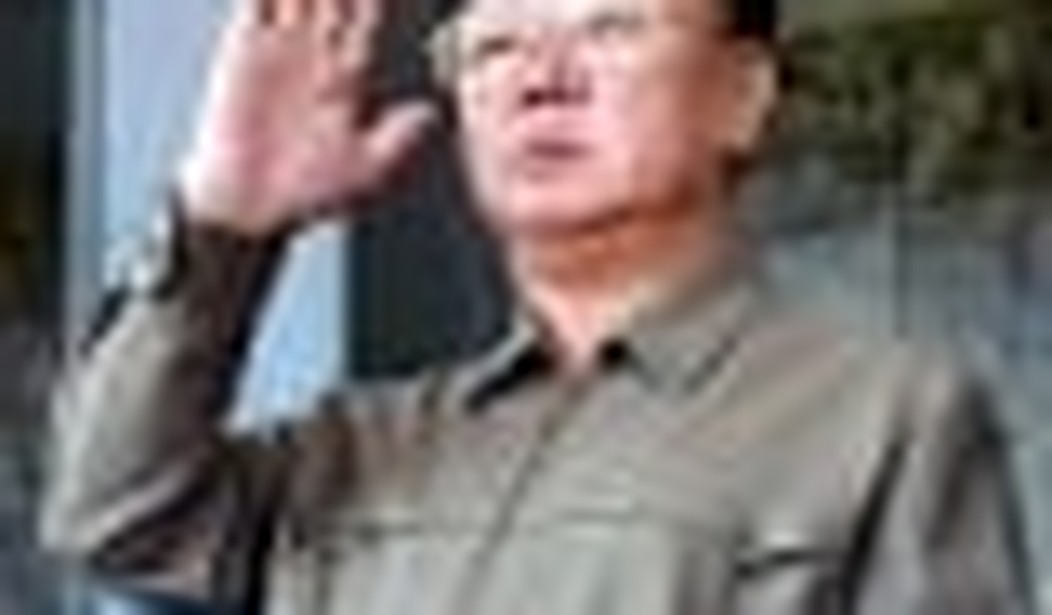On Monday, the United States and South Korea began the 11-day Ulchi Freedom Guardian exercise. The ongoing drill, “one of the largest joint staff-directed theatre exercises in the world,” is an annual event. This year it involves 86,000 troops. It is, not coincidentally, taking place at the same time 400,000 of the South’s officials and government employees are participating in an anti-terrorism exercise.
Moreover, it has only been a week since Seoul wrapped up its most extensive anti-submarine drill and 19 days after the end of joint naval maneuvers in the Sea of Japan by the American and South Korean navies. The two allies, obviously, are intensifying their preparations for war.
As they should. The North Koreans, in March, torpedoed the Cheonan and killed 46 South Korean sailors on the frigate. Since then, Pyongyang has snatched a South Korean fishing boat with its crew of seven and been hurling invective toward the South. For instance, on Sunday the North Korean military promised to inflict the “severest punishment no one has ever met in the world” for the Ulchi Freedom Guardian drill.
Of course, we know the North Koreans have no intention of initiating hostilities at this moment. For one thing, they always issue bellicose statements whenever the Americans and South Koreans participate in military drills, even though they are defensive in nature. And, as a shrewd aggressor, Kim Jong Il, the North’s wily leader, would not think of committing an act of violence when his adversaries have deployed so many military assets on or near the Korean peninsula.
Yet we also know that, in the near future, Chairman Kim will order his forces to kill South Koreans — and possibly Americans as well. Why? First, he and his dad, Kim Il Sung, have established a pattern of wanton events. Among other things, they grabbed the Navy’s Pueblo in international waters and tortured the crew, shot down an unarmed Navy reconnaissance plane and killed 31 aviators — the largest loss of U.S. servicemen in a single incident in the Cold War — bombed the South Korean cabinet in Burma, shot down a South Korean civilian airliner, and regularly attacked targets in the South.
Moreover, creating incidents is good politics at home — it rallies members of the regime and demonstrates Kim’s power to ordinary citizens. And murder — let’s call Kim’s acts by their proper name — has convinced weak American and South Korean leaders to provide assistance to the regime. Washington and Seoul have, if the truth be told, paid Mr. Kim to refrain from slaughtering their citizens and soldiers.
This dynamic — horrible incidents, followed by acts of resolve, and then payment of rewards — continues. No one outside North Korea likes it, but no one wants to risk war with the Kim family regime. How do we finally break this iron cycle?
Here’s a suggestion: Let’s think like a Kim. Kim commits minor acts of aggression because he knows he can get away with them. Case in point: He sinks the Cheonan, and two things happen. The president of the Security Council reads a statement, and then Seoul and Washington conduct military drills. Kim, who is not adversely affected by either of these moves, knows we will not start a war to avenge his acts of murder.
So let’s recognize that Kim won’t start hostilities if we retaliate with small steps that injure his regime. He knows that a general conflict on the Korean peninsula will destroy his state. So he won’t start one if he has any hope of continuing his family’s rule. This situation gives us considerable room for maneuver.
To stop his acts of killing, we have to make him hurt. For example, after the sinking of the Cheonan, Seoul could have closed down the Kaesong industrial zone, which is just north of the Demilitarized Zone that separates the two Koreas. There, about 120 South Korean businesses employ around 44,000 North Korean workers. That, by itself, would deprive Kim of a substantial source of funding because Pyongyang skims a large portion of the wages.
Similarly, we can cut off North Korea’s access to the international financial system. The Bush administration did just that in September 2005 when it declared Banco Delta Asia, a bank Kim used in Macau, to be a “primary money laundering concern.” As such, no financial institution would do business with it. And as a result, North Korea, for two years, had to use its diplomats to ferry cash in bulging suitcases around the world. And, lo and behold, Kim Jong Il did not start a war even though the U.S. Treasury Department crippled his government.
Washington, in the wake of the Cheonan incident, has announced a new set of financial sanctions, but they are too narrowly crafted. Why not expand them and really injure Kim? This would be a particularly good time to do that because he is in failing health and preoccupied by the internal opposition to his efforts to install his 27-year-old son, Kim Jong Un, on the throne.
Similarly, we can ring the waters around the North with frigates and begin inspecting all cargoes on the high seas. Similarly, we should search every plane leaving North Korea when they land in countries friendly to us. Kim has been exporting nuclear technologies to Iran and Syria, so we need to stop him in any event.
Kim will not start a war if we employ the same tactics against him that he uses against us. And if we do not change our approach toward his aggressive regime, we know one thing: the killing of Americans and South Koreans will continue.









Join the conversation as a VIP Member